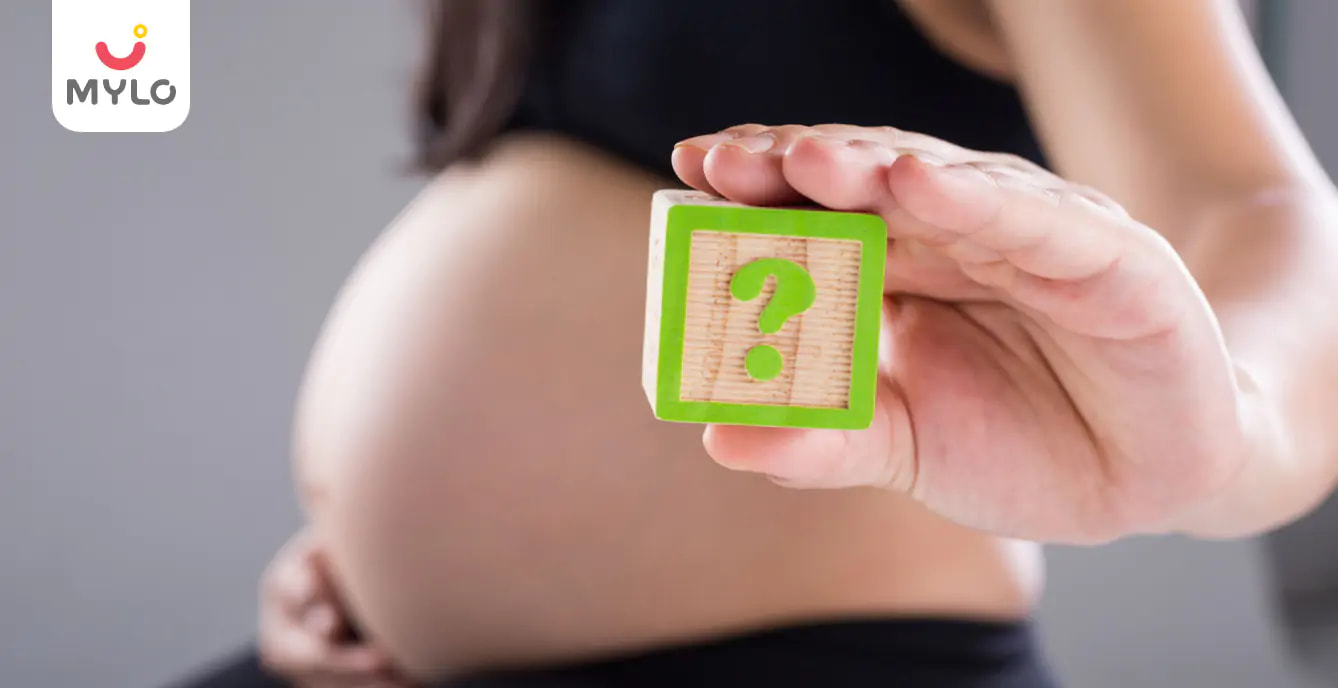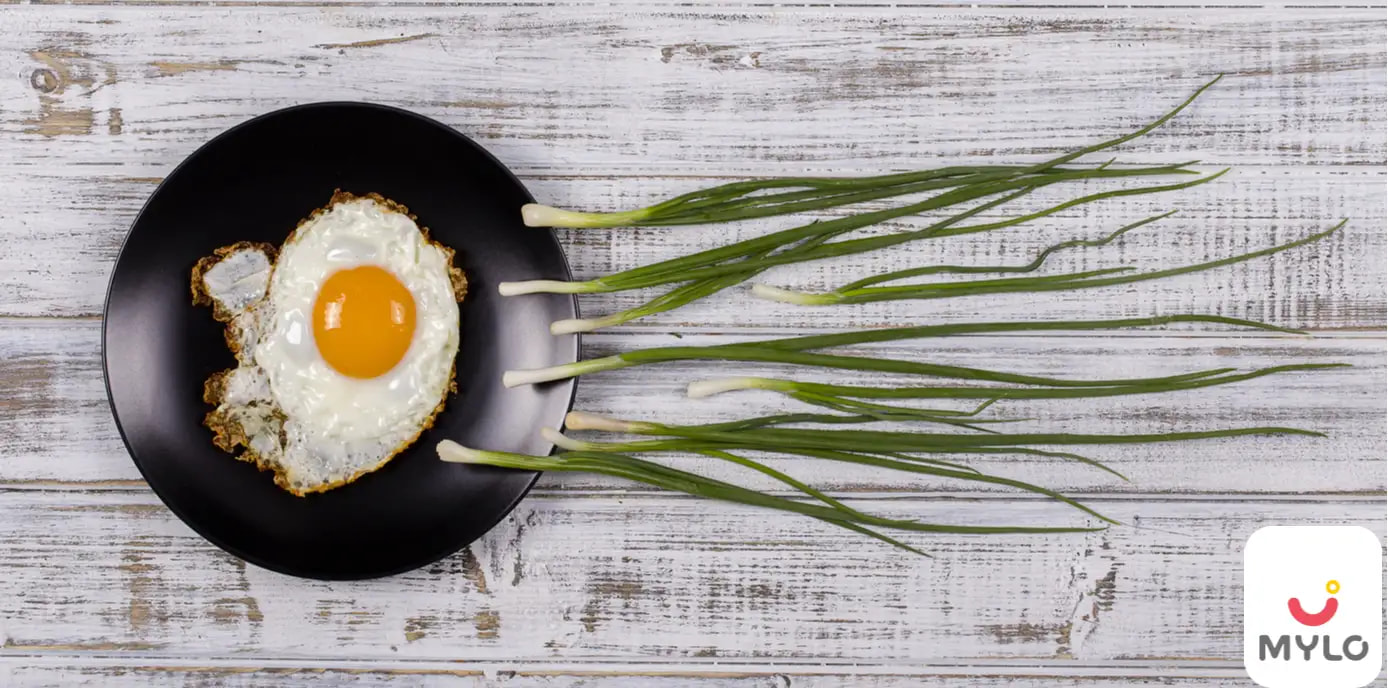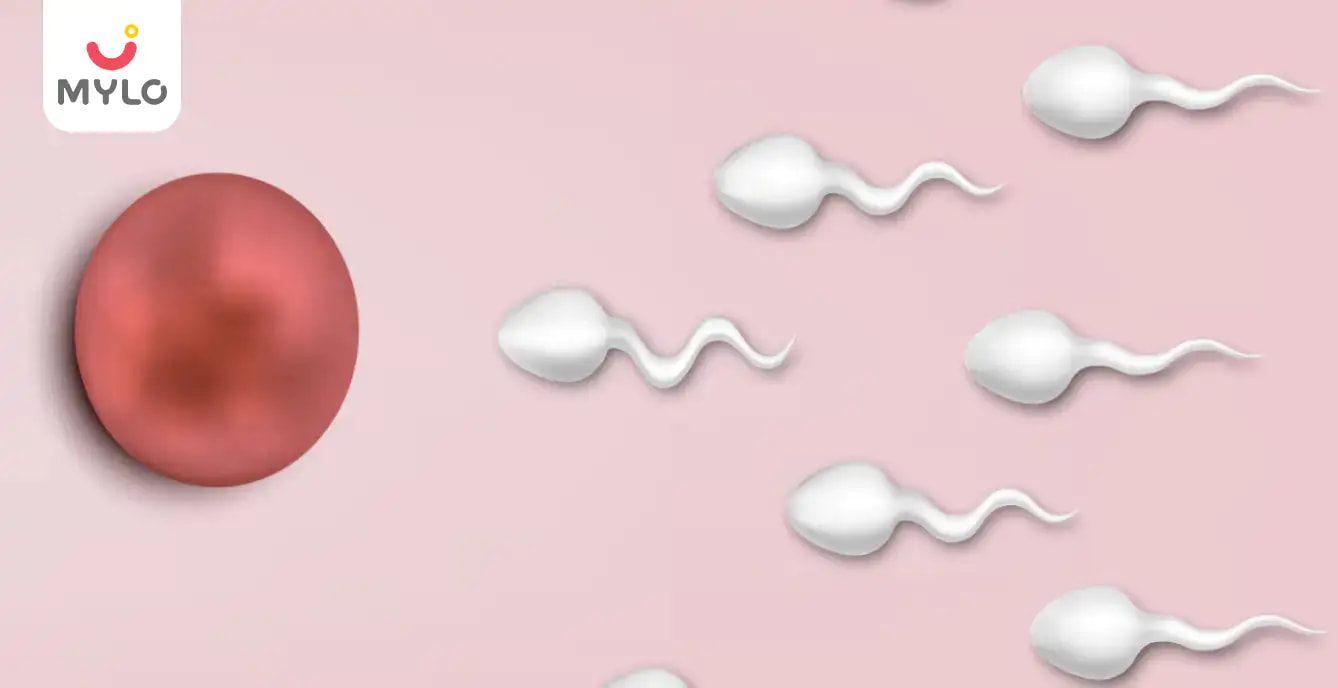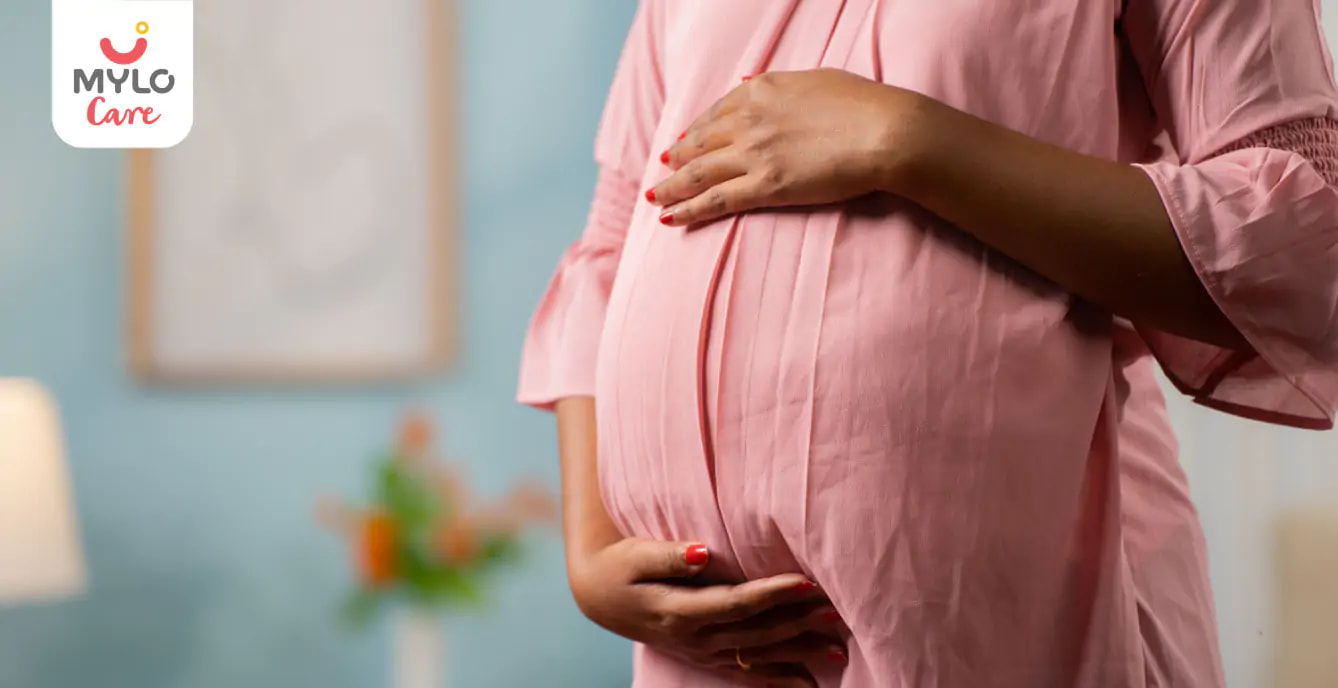- Home

- Ovulation

- Does Ovulation Occur During Pregnancy: What You Must Know
In this Article

Ovulation
Does Ovulation Occur During Pregnancy: What You Must Know
Updated on 3 November 2023



Medically Reviewed by
Dr. Shruti Tanwar
C-section & gynae problems - MBBS| MS (OBS & Gynae)
View Profile

As women, our bodies are complex and fascinating creatures. From puberty to menopause, our hormones and reproductive systems are constantly shifting and evolving. However, what happens when pregnancy is thrown into the mix? One of the most common questions asked by expectant mothers is does ovulation occur during pregnancy. The answer is not as straightforward as you may think, and understanding the ins and outs of this topic is crucial for any woman who wants to take charge of her reproductive health.
In this article, we will explore the questions around ovulation during pregnancy and provide you with the information you need to know. But first let us understand what is ovulation.
What is ovulation?
Ovulation is a natural process in a woman's menstrual cycle when an ovary releases an egg. It usually occurs around the middle of the menstrual cycle, approximately 14 days before the next period. During ovulation, the egg travels down the fallopian tube, where it may be fertilized by a sperm. If the egg is not fertilized, it will dissolve, and the uterus lining will shed during the woman's next period. Ovulation is a critical process for women trying to conceive, and understanding when it occurs can help them plan for pregnancy.
What are the signs of ovulation?
The signs of ovulation include the following:
-
Change in cervical mucus
-
Tenderness or soreness in breasts
-
Increased sense of smell
-
Mild pain in the lower abdominal region
-
Changes in libido
-
Light spotting
-
Cervical changes
-
Headaches
-
Nausea
-
Increase in basal body temperature
You may also like: Can You Detect Ovulation or Pregnancy Using Basal Body Temperature?
How pregnancy impacts menstrual cycle?
During pregnancy, the menstrual cycle stops and is replaced by a new hormonal cycle. Pregnancy induces a significant shift in the hormonal balance of the body. The usual monthly hormonal pattern takes a back seat and gives way to a unique 9-month phase. This means that the normal processes such as ovulation and menstruation stop taking place. Instead, the body starts preparing for pregnancy and brestfeeding.
As a result, the hCG levels in the body rise rapidly after conception and peak around the 12th week, before decreasing for the rest of the pregnancy. Meanwhile, estrogen and progesterone levels continue to increase progressively from the time of conception and only decline after the baby's birth.
Does ovulation occur during pregnancy?
Under normal circumstances, ovulation stops during pregnancy because the body accommodates the developing embryo. Theoretically, it would be impossible or highly unlikely for a woman to ovulate after getting pregnant. However, under very exceptional circumstances, a woman may continue to ovulate while pregnant and conceive another child that develops at a different pace within her. This rare occurrence is known as superfetation, and it has been recorded in only 10 cases in medical literature.
Fertility treatments can increase the risk of ovulation during pregnancy. Babies born through superfetation may be born at the same time but have different ages and levels of maturity. Nonetheless, babies conceived via superfoetation tend to survive.
What is superfetation?
Superfetation is a rare phenomenon that occurs in some animals where a female becomes pregnant while she is already pregnant. This means that the female releases another egg and becomes fertilized while the previous fetus is still developing in her uterus. It is more commonly observed in some species of animals like rabbits, rodents, and some species of primates. However, it is extremely rare in humans and has only been documented a few times in medical literature.
Generally, once a woman becomes pregnant, her body stops releasing eggs. And the entire mechanism of pregnancy, including physical and hormonal changes, comes together to avert the second pregnancy. However, in superfetation, an already pregnant lady may continue to ovulate while facilitating the male sperm to fertilize the egg and make implantation possible. It is an unusual event, though.
How does a superfetation occur?
The possibility of conceiving when already pregnant is likely only if the following seemingly impossible events happen:
-
Women must ovulate or show signs of ovulation during their ongoing pregnancy.
-
Sperm must make its way through the secured cervix to the fallopian tubes through the already-occupied uterus to facilitate embryo implantation.
How is superfetation different from having twins?
It is different from twins. Women conceive twins either -
-
When a fertilized egg divides into two, or
-
When two sperms fertilize two eggs at the same time
However, superfetation makes a woman develop an additional fetus. Its age would be a couple of weeks younger than the existing fetus. According to a paper published in the European Journal of Obstetrics and Gynaecology in 2008, in cases of superfetation, the two embryos will develop in separate amniotic sacs and have different sizes throughout gestation and after birth.
The Bottomline
In answer to our initial question: does ovulation occur during pregnancy, the answer is no. But in some rarest of rare circumstances a woman may experience ovulation during pregnancy. Having sex during pregnancy while you're ovulating may result in superfetation. This rare occurrence has been recorded in only 10 cases in medical literature. If you have any concerns about your menstrual cycle or fertility, consult with your healthcare provider.
References
1. Ovulation during Pregnancy. (1887). Buffalo Med Surg J. NCBI
2. Kumar P, Magon N. (2012). Hormones in pregnancy. Niger Med J. NCBI
3. Tarín JJ, García-Pérez MA, Hermenegildo C, Cano A. (2013). Unpredicted ovulations and conceptions during early pregnancy: an explanatory mechanism of human superfetation. Reprod Fertil Dev





Medically Reviewed by
Dr. Shruti Tanwar
C-section & gynae problems - MBBS| MS (OBS & Gynae)
View Profile


Written by
Priyanka Verma
Priyanka is an experienced editor & content writer with great attention to detail. Mother to an 11-year-old, she's a ski
Read MoreGet baby's diet chart, and growth tips

Related Articles
Related Questions
Hello frnds..still no pain...doctor said head fix nhi hua hai..bt vagina me pain hai aur back pain bhi... anyone having same issues??

Kon kon c chije aisi hai jo pregnancy mei gas acidity jalan karti hain... Koi btayega plz bcz mujhe aksar khane ke baad hi samagh aata hai ki is chij se gas acidity jalan ho gyi hai. Please share your knowledge

I am 13 week pregnancy. Anyone having Storione-xt tablet. It better to have morning or night ???

Hlo to be moms....i hv a query...in my 9.5 wk i feel body joint pain like in ankle, knee, wrist, shoulder, toes....pain intensity is high...i cnt sleep....what should i do pls help....cn i cosult my doc.

Influenza and boostrix injection kisiko laga hai kya 8 month pregnancy me and q lagta hai ye plz reply me

Related Topics
RECENTLY PUBLISHED ARTICLES
our most recent articles

Diet & Nutrition
গর্ভাবস্থায় আলুবোখরা: উপকারিতা ও ঝুঁকি | Prunes During Pregnancy: Benefits & Risks in Bengali

Diet & Nutrition
গর্ভাবস্থায় হিং | ঝুঁকি, সুবিধা এবং অন্যান্য চিকিৎসা | Hing During Pregnancy | Risks, Benefits & Other Treatments in Bengali

Women Specific Issues
স্তনের উপর সাদা দাগ: লক্ষণ, কারণ এবং চিকিৎসা | White Spots on Nipple: Causes, Symptoms, and Treatments in Bengali

Diet & Nutrition
গর্ভাবস্থায় পোহা: উপকারিতা, ধরণ এবং রেসিপি | Poha During Pregnancy: Benefits, Types & Recipes in Bengali

Diet & Nutrition
গর্ভাবস্থায় মাছ: উপকারিতা এবং ঝুঁকি | Fish In Pregnancy: Benefits and Risks in Bengali

Diet & Nutrition
গর্ভাবস্থায় রেড ওয়াইন: পার্শ্ব প্রতিক্রিয়া এবং নির্দেশিকা | Red Wine During Pregnancy: Side Effects & Guidelines in Bengali
- ইনার থাই চ্যাফিং: কারণ, উপসর্গ এবং চিকিৎসা | Inner Thigh Chafing: Causes, Symptoms & Treatment in Bengali
- গর্ভাবস্থায় ব্রাউন রাইস: উপকারিতা ও সতর্কতা | Brown Rice During Pregnancy: Benefits & Precautions in Bengali
- Velamentous Cord Insertion - Precautions, Results & Safety
- Unlock the Secret to Flawless Skin: 7 Must-Have Qualities in a Face Serum
- Unlock the Secret to Radiant Skin: How Vitamin C Serum Can Transform Your Complexion
- Gender No Bar: 10 Reasons Why Everyone Needs a Body Lotion
- Unlock the Secret to Radiant Skin How to Choose the Perfect Body Lotion for Your Skin Type
- Top 10 Reasons to Apply a Body Lotion After Every Bath
- Communication in Toddlers: Milestones & Activities
- How to Improve Vocabulary for Toddlers?
- A Comprehensive Guide to Understanding Placenta Accreta
- Vulvovaginitis in Toddlers Causes, Symptoms and Treatment
- A Comprehensive Guide to Understanding Cerebral Palsy in Children
- Bitter Taste in Mouth During Pregnancy: Understanding the Causes and Remedies


AWARDS AND RECOGNITION

Mylo wins Forbes D2C Disruptor award

Mylo wins The Economic Times Promising Brands 2022
AS SEEN IN
















- Mylo Care: Effective and science-backed personal care and wellness solutions for a joyful you.
- Mylo Baby: Science-backed, gentle and effective personal care & hygiene range for your little one.
- Mylo Community: Trusted and empathetic community of 10mn+ parents and experts.
Product Categories
baby carrier | baby soap | baby wipes | stretch marks cream | baby cream | baby shampoo | baby massage oil | baby hair oil | stretch marks oil | baby body wash | baby powder | baby lotion | diaper rash cream | newborn diapers | teether | baby kajal | baby diapers | cloth diapers |








